An interview with Dr Lucy Quinn
The Scottish Policy Group’s written interview series to celebrate 10 years!
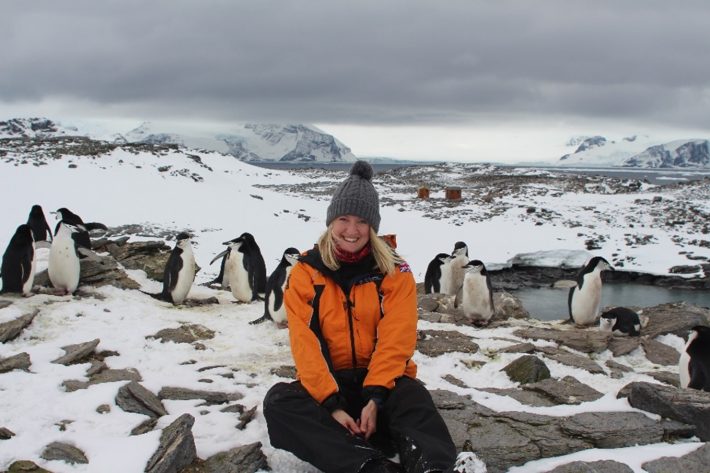
Tell us about yourself?
After graduating from Glasgow University with an Msci. in Zoology (via a partial music degree, but that’s another story…), I completed a PhD with the University of Aberdeen at the Lighthouse Field Station, working on northern fulmar foraging in the non-breeding period. I then worked various seabird-based fieldwork contracts for the RSPB and for Centre for Ecology and Hydrology (CEH), before taking a job with British Antarctic Survey (BAS) which brought me to Bird Island in the sub-Antarctica as the albatross zoologist for 2 ½ years. I now work for NatureScot, a statutory nature conservation body, as one of their marine ornithologists, based in Inverness and am now mostly desk-based, with occasional site visits to seabird colonies.
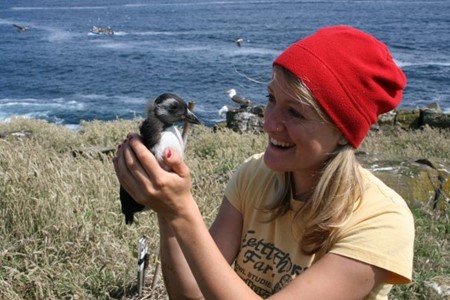
Tell us about your research/work and how that might intersect with policy?
Working as a marine ornithology advisor for NatureScot means I provide policy advice on marine birds at both a protected site level, as well as at a wider strategic policy level, to Scottish government. My work is really varied and includes a mixture of: assessing impacts of marine development on marine birds, commissioning and managing research projects, developing conservation advice for Special Protection Areas (SPAs) for marine birds, work on wider seas protection for marine birds, working with others to implement climate change mitigation for marine birds, and responding to media requests for scientific or policy input into a media story. I also have a particular interest in how marine litter affects seabirds, especially through my previous work on albatross, as well as on fulmars as part of Wageningen Marine Research’s Europe-wide research group.
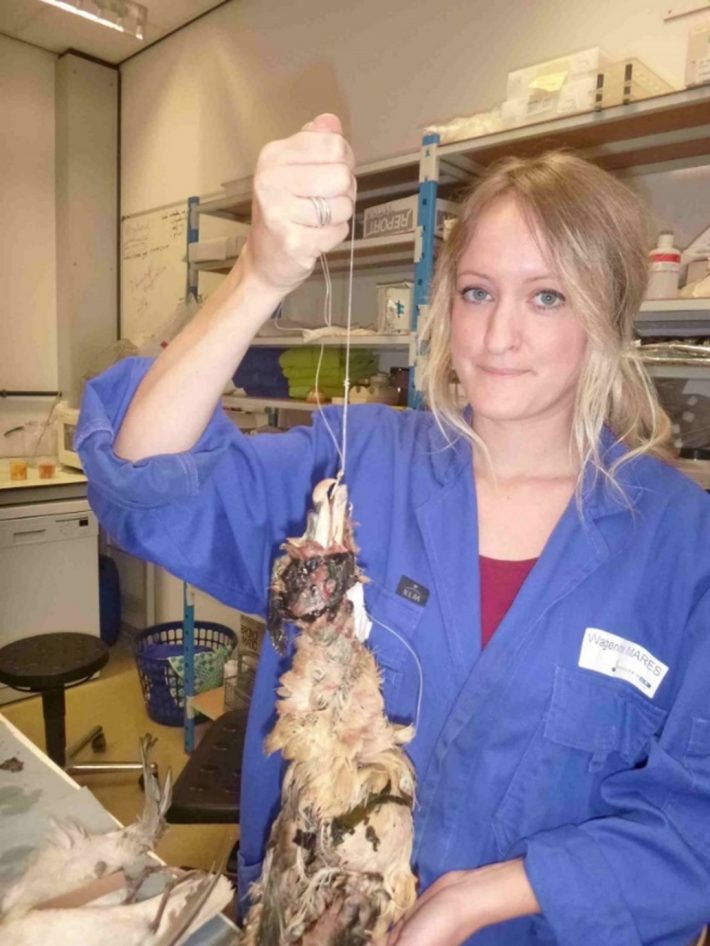
What ecological challenges are drawing the most attention in your field?
At the moment there is a huge focus on the two main crises of our time: climate change and biodiversity loss. Strategic policy work, such as the Scottish Seabird Conservation Strategy, is ongoing to try to tackle both these issues. There is a step-change ahead of us in terms of how we need to tackle climate change and biodiversity loss. It is clear that it will require strong leadership from the top, but also the support of public opinion in order to affect the huge change that is required. For marine birds specifically, there are large-scale distribution and abundance changes predicted, with many of our Scottish species predicted to decline further and some species, such as Arctic skua, expected to be extinct from Scotland in the next few decades. The importance of ensuring data collection at key seabird sites with long-term datasets is absolutely critical if we are to be able to assess what changes are occurring and are predicted to occur for our seabird species. Sharing ideas and collaborating with others will also be crucial for solving the complex and challenging issues that the marine world faces today.
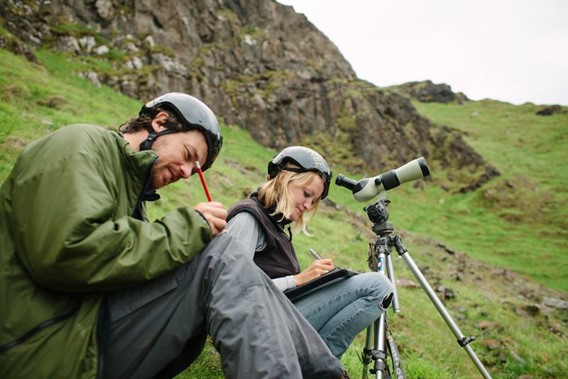
What is the most interesting place you have traveled to for work?
I’ve been very fortunate to have travelled to many interesting places for work, both near and far, including; Ecuador, Iceland, New Zealand, Christmas Island, Ascension Island, Orkney, Shetland, Ireland. But one that stands out is Bird Island, South Georgia. It was the most incredible privilege to live amongst albatross, penguins, fur seals and leopard seals for two and a half years, and getting to experience living on such a remote island for so long. The sights, sounds, and smells of living so closely with these amazing top predators was something I will never forget. There are so many memories from Bird Island that it’s hard to choose one that stands out but I do remember on one occasion going up to check on the wandering albatross colony and spotted one female albatross laying an egg – I have a whole extra level of respect for female wandering albatrosses when you see how big their eggs are! For all the positives about working on Bird Island that I remember, it also saddened me that even in this remote environment the effects humans are having on the wildlife in the Southern Ocean could be seen first-hand; whether this was in relation to climate change effects on sea ice, long-line fishing practices or marine litter. I have to say though, returning to Scotland after years of travelling for work made me appreciate just what incredible nature Scotland also has, so I feel really lucky to be back working in marine policy, in Scotland.
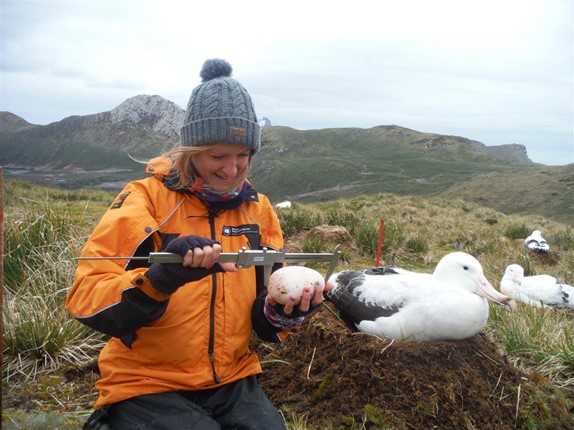
What do you get out of being on the SPG Committee?
I only joined the SPG Committee this year (2021) as a Committee Member and due to the covid restrictions have been unable to meet the Committee in person yet. But it’s been fantastic meeting (albeit virtually) other members so far and I got to take part in my first virtual Pie in the Pint Event, which was a real success. I’ve been really impressed with how engaged the SPG Committee is on current policy issues and have been warmly welcomed by all the lovely Committee members. It’s been great to join a group of likeminded individuals who have the same passion and enthusiasm about policy and science, and the important interface between the two. I’m very much looking forward to meeting in person and having an actual pie and a pint with them in the future.
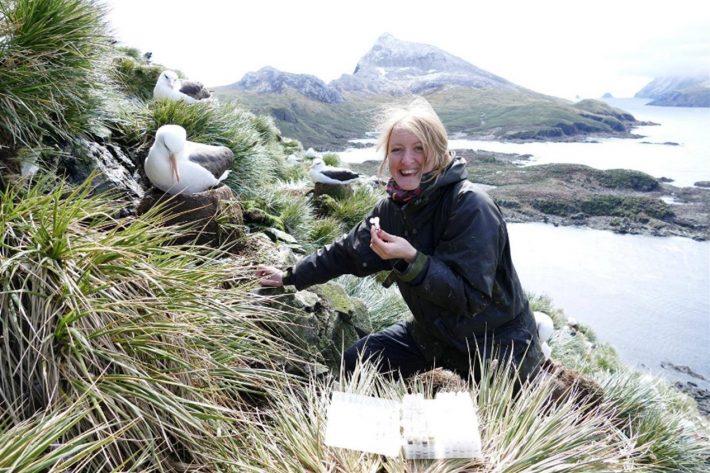
If you had to pick a favorite project you have worked with SPG, what would it be?
I got so much out of taking part in the Parliamentary work shadowing experience at Scottish Parliament in 2019. It was an amazing opportunity to see how the scientific and policy recommendations in my job with NatureScot are influenced, but also used in parliament, and how this is done so in relation to the needs of other stakeholders. It is all too easy to unintentionally have tunnel vision when it comes to your own specialty, but seeing how it fits into the bigger picture was hugely valuable and helped put my own work into context.
Like what we stand for?
Support our mission and help develop the next generation of ecologists by donating to the British Ecological Society.